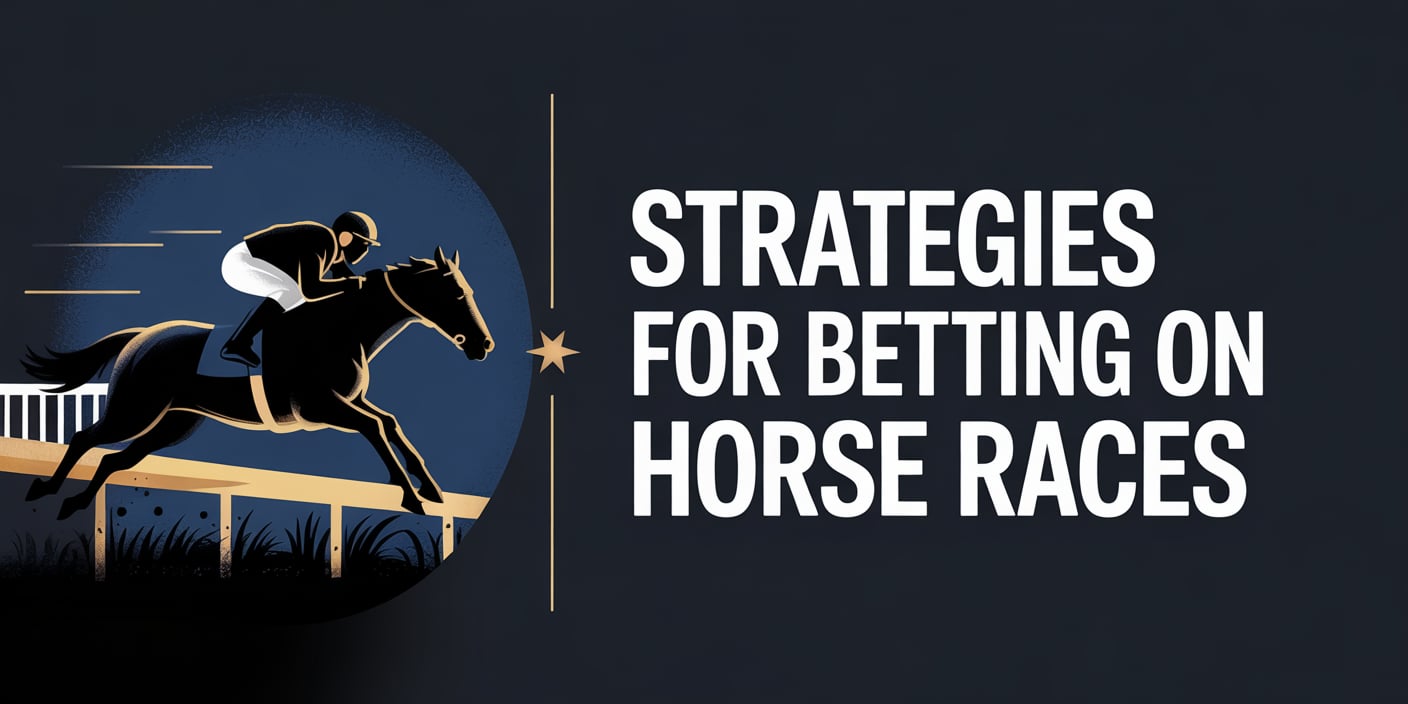
When you have selected the most interesting races and identified useful markets, you want to think about strategy. Use of a systematic approach and proven methods, even an experienced player - never mind an inexperienced player - will improve the chance of success. Let's examine the most common, clear strategies you can use:
-
Against the favorite - pick a horse to bet against that has a winning odds of no greater than 2.0. Your chances of success increase, if other factors exist such as rain, strong winds, or a poor track.
-
On Two Favorites - place 3 bets on the two main favorites, one standard bet on each of them and one accumulator on both. This strategy works well in the early races of the day.
-
On the Mid-Tiers – choose a race where there are no obvious favorites, leading to higher odds.
-
Follow the Money - analyze the odds and place a bet on a horse who has decreasing odds. This suggests that many other bettors are betting on this horse.
-
Lazy Strategy – if you've backed three favorites in three different races on the same day, and their odds were in excess of 2.0.
The value of these strategies lies in the organization of a player's actions. By using proven methods, a bettor can avoid unexpected losses and, if issues arise, will have time and opportunity to switch to a different strategy that suits them better. Also, when looking for convenience and reliability, fast cashout horse racing betting can be a game changer, offering quick access to winnings and a smooth betting experience.
How to Bet on Horse Races: Analysis
In many sports, it is just as important to be a knowledgeable person when you make a bet. Before you get started, it might be best to listen to expert opinion. If there aren't experts available in a language you understand, this isn't a big deal; there are thousands of useful references and expert material in English. With modern translation tools available today you will not lose the meaning or the logic of their information.
It is beneficial to have full statistical information for both the horses and jockeys and also how they perform on different tracks, for the purposes of good analysis. This is a wealth of resource to help with detailed analysis.
Stick to one specific type of race because it will ultimately involve less information to process and take less time overall. Keep track of the details associated with the horses and jockeys, since you cannot collect all of the nuances from the online statistics.
Remember that track surfaces can also influence the results. The different types of track surfaces include "firm," "firm-to-soft," "soft," and "heavy."
Weather forecasts on race day are also important. Not all horses race similarly, if at all, on wet tracks, so let's take that into account when placing your bets!
One more key factor to consider is insider information that can come from social media accounts from the stables, trainers, and jockeys, as well as from other insiders. Sometimes, specialized websites and sections in the major media will publish timely and worthwhile information that can help you make better informed bets.
Interesting Facts About Betting on Horse Races
The first forms of betting on sports events were really tied to horse racing, after chariot races in Ancient Rome. The first official classic horse races happened in 1512. In the early 20th century, betting on horse races and other events began to be taxed officially, and it became a major source of government income in many places.
In the third millennium, surprisingly, horse racing remains robust and vibrant across other parts of the world. Here is some amazing industry data:
-
176,000 horses were bred in one year in the top 7 countries.
-
166,000 of them participated in at least one race.
-
$5 billion – this is the total prize money earned by horse owners.
-
The average prize per race in certain regions is $120,000.
This information highlights the immense scale of the horse racing business and the wagers on these races, including large amounts of money and their many players from all over the world.
A Notable Example: The Grand National
The Grand National is one of the most well-known and thrilling races in the world. It is widely regarded as one of the most prestigious horse races in the world with over 500 million television viewers annually.
One of the races, where horse Noble Yeats won at 51.0, became so famous as he was thought of as an outsider, and his jockey was an amateur dentist. Combined this was a great win as no amateurs have won for over 30 years, since 1990. It is even more amazing that this was the victory of Noble Yeats, which attracted 65,00 players, showing that in horse racing anything can happen.


